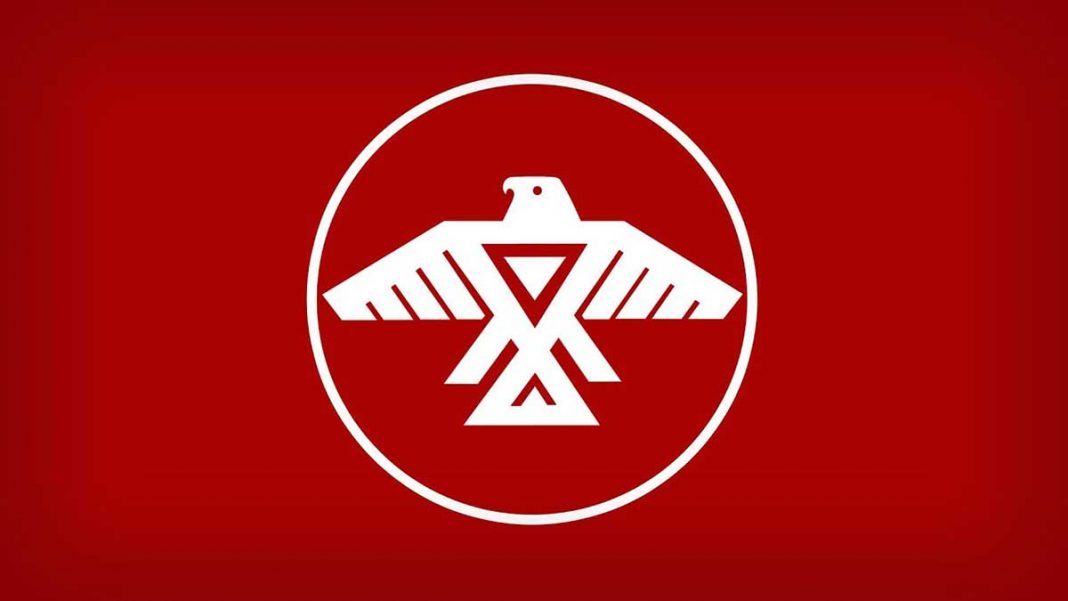OTTAWA—Anishinabek Nation Grand Council Chief Linda Debassige says that continued delays in addressing chronic underfunding of First Nations community policing is leading to many communities remaining in a state of crisis.
“Continued delays continue to keep our communities in a state of crisis,” said Anishinabek Nation Grand Council Chief Debassige. “Our communities are getting very frustrated and are looking at alternative measures to get Canada’s attention. The hurt, fear and concern from all our communities is so strong. Communities are getting organized to get attention to this issue in one form or another. My concern is that in my region we will end up potentially having another Ipperwash.”
“Delays for the human rights hearing (that was scheduled for early January) will not help,” said Grand Council Chief Debassige.
The Grand Council Chief made these statements at a press conference held last Thursday in Ottawa with First Nation leaders and Indigenous police chiefs, where the Assembly of First Nations (AFN) were holding a meeting. The Indigenous Police Chiefs of Ontario (IPCO) is asking Canada to withdraw a motion it has put forward to adjourn an Ontario Human Rights Tribunal hearing that was scheduled to start on January 6. IPCO has filed a human rights claim against the federal government alleging that decades of chronic underfunding of First Nations police services is having a significant negative impact on First Nations people and communities.
Julian Falconer, lawyer for IPCO told those at the press conference, that Public Safety Canada (PSC), the federal ministry that is responsible for administering the First Nations and Inuit Policing Program, filed a late request to adjourn the Tribunal hearing less than a month before it was to take place.
IPCO had filed the human rights complaint in March 2023 in response to the federal government cutting funding to several police services, including the UCCM Anishnaabe Police Services because of a dispute over chronic underfunding and the government failing to recognize the inherent rights for them to police themselves. Along with filing the human rights complaint, IPCO had applied for emergency relief to the federal court and Justice Denis Gascon had ordered the federal government to restore funding and for PSC to renegotiate the terms of the funding agreements, noting the terms and conditions in it were discriminatory.
After Justice Gascon’s ruling, on June 30, 2023, where the federal government was ordered to return funding to these First Nation police forces, and Canada was to negotiate six meetings took place with ‘no tangible results,’ said Mr. Falconer. “The Human Rights hearing was to start on January 6, 2025, but Canada wants it to be cancelled.”
Grand Council Chief Debassige said there are 39 communities within the Anishinabek Nation, five of which are currently under a state of emergency related to inadequate policing resources. This includes her home community of M’Chigeeng, which had called a state of emergency in 2022 after several violent incidents occurred relating to drug trafficking involving people in the community from southern Ontario.
“Our police services are not allowed to have specialized service policing crime units to address situations in our communities, now more than ever,” said Grand Council Chief Debassige. “It has impacted our children, our elders, our families who live daily in a state of fear and concern.”
“Now at decision time for a hearing to be held Canada is resorting to stall and delay tactics to cancel the hearing,” said Grand Council Chief Debassige. “They (Canada) will not allow First Nations to police themselves.” She said talks with the government about First Nations police funding with leadership have taken place, “with a gun to our heads. ‘If you don’t sign this, you will not have policing.’”
Patsy Corbiere, chief of Aundeck Omni Kaning (AOK) First Nation and Tribal Chief of the United Chiefs and Councils of Mnidoo Mnising said, “We have been negotiating for a long time with people (the federal government) that don’t want to negotiate on First Nations policing. It is sad, they are not fulfilling their agreement and promises. (Canada Prime Minister Justin) Trudeau has been promising to do many things to benefit First Nations policing, but we don’t see action taking place. Many of our communities are in crisis with drugs and gangs, with kids as young as 14 years old carrying guns. We need policing that protects our communities, and our police forces need the resources to provide this.”
“It is time for the government to step up and take real action,” said Chief Corbiere. “The (federal) Public Safety department is not doing its job. Instead, we have broken promises and people dying. The government has a responsibility to First Nations, policing is an essential service and this needs to be established and happen.”
Kai Lui, executive director of IPCO said he founded the group five years ago to represent and advocate or Indigenous police services in Ontario. He described how response time to emergency in Treaty 3 territory is measured in hours as opposed to minutes, because there are no officers stationed in some First Nations. “In March 2023, funding was cut off to three First Nation police services in a dispute over chronic underfunding. We filed a complaint on this and also filed a human rights complaint. This hearing was to begin the first week of January, but a month before this Canada is applying for a delay in the hearings.”
“First Nations policing is purposely set up to fail,” said Mr. Lui. “What we need is for Canada to stop delaying and to start taking responsibility. There is all this talk about reconciliation. How can reconciliation be achieved when Canada won’t allow us to have our day in court.”
Mr. Lui raised issues of First Nations policing model being completely different than provincial police services who can advocate for services and resources based on need, such as special crime units, the wage structure for officers being different, some police services that don’t have enough vehicles and some communities that have no police service.
The AFN at its meeting last week also called on the federal government for a national inquiry into systemic racism in (non-native) policing. This resolution was passed in front of Prime Minister Trudeau and several cabinet minister who were at the AFN. Three women Indigenous mothers of people who died from police encounters, called for justice reform and a national inquiry into police violence against Indigenous people.
“Systemic racism in policing continues to result in the loss of First Nations lives, deeply affecting our families, communities and further eroding trust,” stated AFN National Chief Cindy Woodhouse Nepinak. “An inquiry led by First Nations, grounded in our cultural practices and a trauma-informed approach, is essential to develop effective solutions that protect the rights and safety of our people.”
The emergency resolution passed by First Nations-in Assembly calls for a national inquiry into system racism in policing, to be led by First Nations commissioners, with a mandate to investigate police-related deaths, serious incidents and system racism in law enforcement and to make culturally informed recommendations that address root causes and drive reform. Necessary and overdue reforms include mandatory de-escalation training, implementation of national crisis intervention teams for crisis response and policies such as banning choke holds and requiring a use of force continuum.
Prime Minister Trudeau indicated he would do everything in his power as a government to address racism in Canada’s justice system. However, he did not commit to a national inquiry.
Grand Council Chief Debassige called the prime minister “absolutely cowardly” for failing to make the commitment to an inquiry. “For the premier minister not to support an inquiry allows racism in Canada to continue.”





